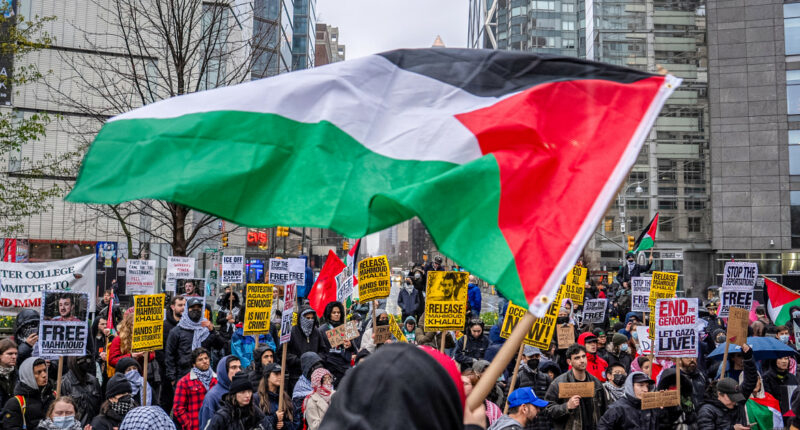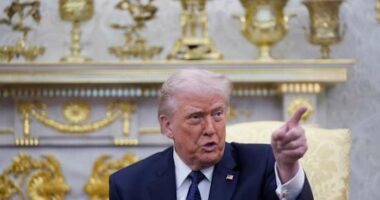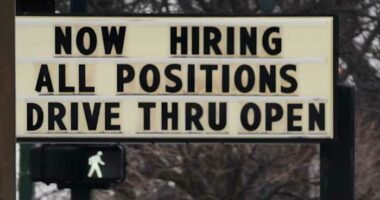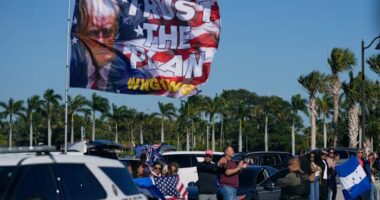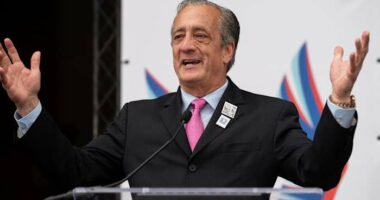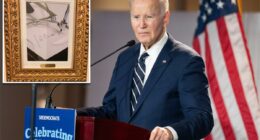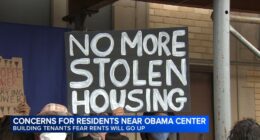Share this @internewscast.com
WASHINGTON — On Tuesday, a federal judge criticized the Trump administration’s efforts to suppress free speech, ruling in favor of foreign students who were targeted because they supported Palestinian rights.
Judge William Young, from Massachusetts and appointed by President Ronald Reagan, determined that foreign students have the same First Amendment rights to free speech as American citizens.
He concluded that officials, including Secretary of State Marco Rubio and Homeland Security Secretary Kristi Noem, acted deliberately to suppress these students’ rights to free speech and assembly.
The ruling reflects ongoing tensions within the judiciary regarding criticism from the administration. Young mentioned he received a threatening postcard with the message, “Trump has pardons and tanks …. what do you have?”
Responding to this threat, Young noted at the top of his ruling, “nothing but my sense of duty.”
The 161-page ruling concludes with a 13-page critique of President Donald Trump’s second term, depicting him as a self-centered leader pursuing a retaliatory agenda.
Young cited Trump’s orders that targeted law firms, universities and the media, which have fared badly in court, as examples.
“The Constitution, our civil laws, regulations, mores, customs, practices, courtesies — all of it; the President simply ignores it all when he takes it into his head to act,” Young wrote.
“The president’s palpable misunderstanding that the government simply cannot seek retribution for speech he disdains poses a great threat to Americans’ freedom of speech,” he added.
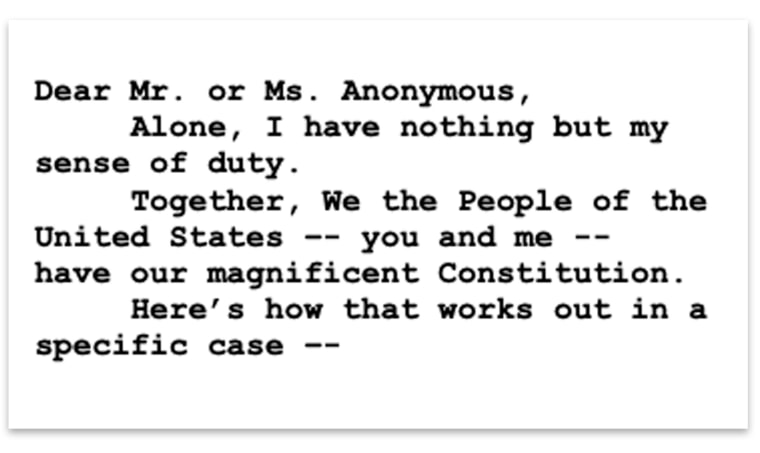
The lawsuit — brought by the American Association of University Professors and the Middle East Studies Association — alleged that the Trump administration violated the First Amendment by creating an ideological deportation policy to remove non-citizen campus activists for expressing pro-Palestinian sentiments.
During the trial, Department of Homeland Security officials confirmed that a majority of the names of student protesters flagged to the agency for potential deportation came from Canary Mission, a website run by an anonymous group that maintains a database of students, professors and others who, it claims, shared anti-Israel and antisemitic viewpoints.
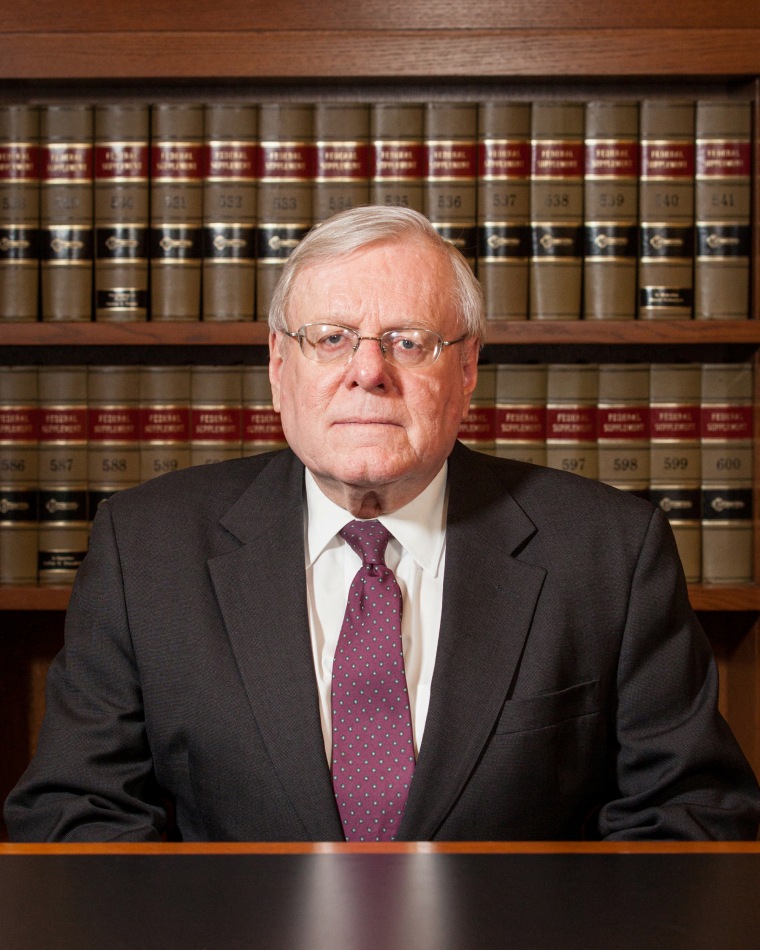
High-profile examples include the detention of Mahmoud Khalil, who was involved in protests at Columbia University, and Tufts University graduate student Rümeysa Öztürk.
Jameel Jaffer, executive director at the Knight First Amendment Institute, which represents the challengers, said in a statement the ruling should have an immediate impact on the Trump administration’s policies.
“If the First Amendment means anything, it means the government can’t imprison people simply because it disagrees with their political views,” he added.
The Justice Department declined to comment. DHS and the State Department didn’t immediately respond to NBC News’ request for comment.
The foreign students’ case is not the first occasion on which Young has been involved in a high-profile dispute involving the Trump administration.
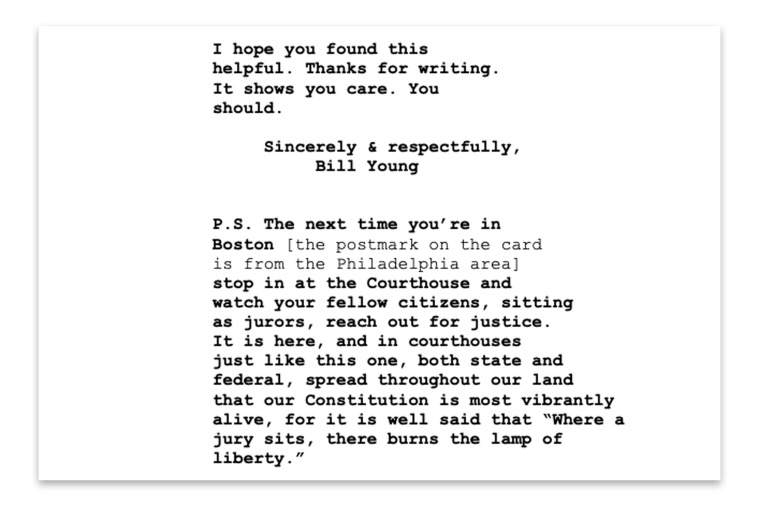
He previously blocked a Trump administration effort to cut teacher training grants, a decision that the Supreme Court overturned.
Young subsequently issued a similar decision against the administration over its planned cuts to health research grants. This too was blocked by the Supreme Court, prompting conservative Justice Neil Gorsuch to accuse Young of defying the justices.
In response, Young said in a later court hearing he had no intention to disobey the Supreme Court.
